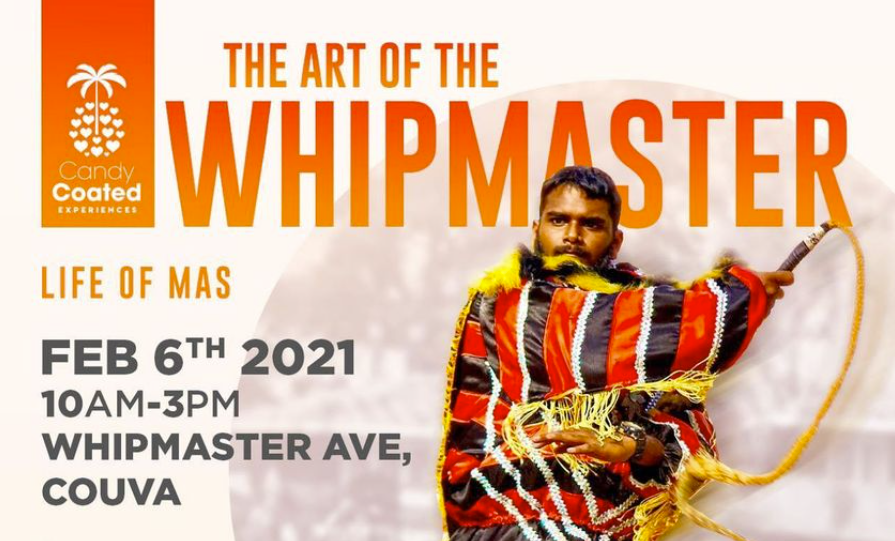New Year’s Day
New Year's Day 2021 will be a little different. No need for the traditional glam parties but more intimate social gatherings will be encouraged if at all.
New Year's Day 2021 will be a little different. No need for the traditional glam parties but more intimate social gatherings will be encouraged if at all.
CarniConversations presents an opportunity for industry leaders, worldwide to meet virtually, from the comfort of their home countries, to re-think and re-imagine the future of Carnival, and thus, determine its evolution.

Welcome to Antillea Soca Series, brought to you by our Gold Sponsors- Pizza Hut and White Oak. Come to Antillea imagined by Caesar's Army, where the Greater Antilles and the Lesser Antilles meet as one. Featuring house DJ Dei Musicale

The Art of the Whipmaster by Candy Coated Experiences Did you know that the Rope Jab Tradition travelled from India to Trinidad before becoming a part of our Carnival Celebrations? You can learn so much more about this Traditional Carnival
This feast centres around the La Divina Pastora statue (Spanish for "Holy Shepherdess") in the southern small town of Siparia, Trinidad on the third Sunday after Easter.
In Trinidad and Tobago, we don't have a summer break, but what we do have is JAVA.
Spiritual Shouter Baptist is indigenous to Trinidad and Tobago, comprising elements of Protestant Christianity and African doctrines and rituals.
Easter is a very important celebration on the Christian Calendar, as observances are based on the death, burial and resurrection of the Lord Jesus Christ. Christians attend Church services and other rituals in the weeks leading up to the holiday.
Commonly referred to as "Eid" is the most widely recognized Islamic observance in Trinidad and Tobago. Eid marks the end of the holy month of Ramadan, which is celebrated in homes and mosques throughout the country.
A full two weeks of celebrations beginning the week before Borough Day with mas, pan, parties and even J'ouvert to celebrate Point Fortin's 41st year as a Borough.
Indian Arrival Day commemorates the arrival of the first Indian Indentured labourers from India to Trinidad, in May 1845, on the ship Fatel Razack. The Fatel Razack brought not only a new labour force to assist in the economic development of Trinidad, but also a new people with a new culture.
In Trinidad and Tobago Corpus Christi (Body of Christ) is a Christian feast celebrating the Holy Eucharist. The feast which is primarily celebrated by the Roman Catholic Church celebrates the death and resurrection of Christ with Mass or Communion whereby, Christians partake in a representation of Christ's body and blood.
In Trinidad and Tobago Labour Day was declared an annual national holiday in 1973. Celebrated on June 19th, it is the anniversary of the day of the Butler Oilfield Riots which took place in 1937.
On August 1, 1838, the enslaved Africans throughout the British Empire in the Caribbean were freed from slavery. In Trinidad and Tobago August 1, 1985, Emancipation Day was declared a national holiday and has since grown into a major national festival, where thousands of people participate in various activities.
This day commemorates Trinidad and Tobago's independence from Britain in 1962. At midnight on 30th August 1962, the Union Jack (British flag) was lowered and the Trinidad and Tobago flag was raised for the first time.
Trinidad and Tobago became a Republic on August 1st, 1976. The event is celebrated as a public holiday on September 24th because this is the date when the first Parliament met under the new Republican Constitution.
Christmas is known to be a religious observance of Christianity celebrating the birth of Christ. However, in Trinidad and Tobago Christmas has expanded well beyond religion to come a cultural celebration.
No one knows for sure when Boxing Day started, but some believe it was centuries ago, when servants would be given the day after Christmas off as a day of rest after feverish preparations for their masters' celebrations.